The ever-evolving landscape of technology has fundamentally transformed the way we live, learn, and shop. As a small business owner, you’re no stranger to the tech tools that make life more convenient. But are you maximizing their potential in your business operations?
Embracing technology can simplify and supercharge your business activities, freeing up time, energy, and even saving money. It’s not just reserved for tech giants; small businesses leveraging these innovations have reported increased revenue per employee, higher growth rates, and above-average employment growth.
No matter if you’re running a local plumbing service, managing a charming flower shop, or working as an independent event planner, these ten essential small business technologies can transform your journey to success.
1. Cybersecurity Solution
In today’s digital age, the importance of cybersecurity cannot be overstated. Protecting sensitive company data and customer information is paramount. Comprehensive cybersecurity solutions fortify your tech infrastructure against digital threats. Safeguard everything, from computers to mobile devices, with robust solutions such as Norton or Bitdefender.
2. Customer Relationship Management (CRM)
Your business’s lifeline is its customers. To flourish, you must attract and retain clients. CRM software streamlines managing relationships with potential leads and existing customers. Consider popular options like HubSpot, Salesforce, or Zoho to enhance your lead conversion, improve user engagement, and reduce marketing costs.
3. Payment Processing System
Efficient payment processing is critical for business success. It’s essential to offer diverse payment options, from online gateways like Stripe and PayPal to credit card terminals. These ensure you cater to your customers’ preferences. Don’t miss out on platforms like Square, which offers user-friendly payment solutions for small businesses.
4. Social Media
Beyond sharing personal photos, social media has evolved into a potent marketing and communication tool for small businesses. Leverage platforms like Instagram, Twitter, and LinkedIn to attract, convert, and engage customers. Tailor your choice of platforms to your target audience and automate your posts with tools like Buffer for an effortless social media presence.
5. Business Website
Your business website serves as a digital storefront. It’s where potential customers go to find essential information about your offerings. Optimize your site for search engines to attract leads organically. If you’re looking for an affordable and hassle-free solution, check out Wix, a popular website-building platform for small businesses.
6. Project Management Platform
Managing various projects and deadlines is a balancing act crucial to client satisfaction. Project management tools like Trello and Asana simplify tracking progress and assigning tasks, even for remote teams. Utilize their messaging functions for seamless communication and collaboration.
7. Inventory Management Software
For businesses selling products, efficient inventory management is a top concern. Maintain the balance between meeting customer demand and avoiding overstock with robust inventory management software. Besides optimizing your workflow, it paves the way for scalable growth. QuickBooks Commerce is a popular choice that streamlines inventory management for small businesses.
8. Location-Based Technology
Thanks to GPS and mobile technology, consumers can swiftly locate services and products nearby. To enhance your business’s visibility, ensure consistency in your business information across platforms like Google My Business, Citysearch, and Yelp. Request customer reviews and establish a strong local presence to attract more customers.
9. Customer Interaction Management
Interacting with customers across various channels can be overwhelming. A customer interaction management solution, such as Zendesk or Freshdesk, consolidates your customer communications into one place. This leads to more responsive, real-time interactions and an enhanced overall customer experience.
10. Additional Small Business Tech Tools
Depending on your industry, you may want to explore other tech tools:
- Calendar App: Keep track of meetings and deadlines with a synchronized calendar app like Google Calendar, which also facilitates coordination with employees and clients.
- Mobile Scanning App: Quickly scan and share essential documents using apps like Adobe Scan, ensuring you stay organized and save time.
- Third-Party E-Commerce Software: Expand your reach with e-commerce platforms like Shopify, instilling trust and security in your customers.
- Proposal Software: Streamline your proposal writing and follow-up processes with tools like PandaDoc, saving you time and impressing potential clients.
- Online Education: In the competitive business world, continuous improvement is key. Access free valuable knowledge from platforms like Coursera to enhance your skills and those of your team.
Embrace these small business technologies, and watch your entrepreneurial journey become more manageable and successful. At Town Tech Team, we are committed to your success. If you need assistance in implementing these technologies or any other tech-related queries, don’t hesitate to reach out to us. Your success is our mission!





